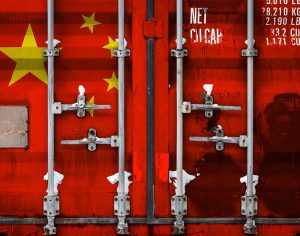Compliance with international trade regulations is becoming increasingly important in determining a firm’s performance. If managed properly, trade compliance can provide a corporation with a strategic edge.
A solid compliance plan allows companies to make better decisions and foresee how some new trade enforcement actions may affect them. Many resources exist to aid organisations in implementing compliance programmes and making the most of available cost-cutting possibilities. Outsourcing may be the best option for businesses that cannot afford to hire full-time employees.
Trade compliance – What’s in it for businesses?
Investing in customs compliance is a strategic choice that ensures long-term growth and pays for itself in no time, argues Arne Mielken of Customs Manager Ltd
In today’s linked and globalised market, trade compliance is becoming more critical to the successful operation of any business. This is because there are now much more cases requiring enforcement actions, and the sums of money required to pay duties are much more significant. As a result, compliance with international trade regulations is becoming increasingly important in determining a firm’s performance and, if managed properly, may provide a corporation with a strategic edge.
Future changes in trade compliance requirements
The speed with which firms must adjust to ever-changing customs compliance regulations has emerged as the primary concern. Take, for example, the implementation of new legislation in response to the rapidly growing online retail industry, which led to the enforcement of additional data obligations in the United States, the European Union, and the United Kingdom. The drastic measures national governments are taking to lessen the effects of the climate emergency is another illustration. As a result of increased environmental awareness, there has been a shift in how we are expected to follow the rules regulating international commerce and customs. In addition, if you include in the potential for trade enforcement measures to occur anywhere in the globe, including the United States, you’ll be aware that our clients are obligated to be prepared to make speedy alterations to their company plans and decisions. A solid compliance plan allows companies to make better decisions and better foresee how some new trade enforcement actions may affect them.
Globalisation requires a commitment to trade compliance for businesses to succeed.
Trade compliance is often seen as an expense. However, businesses that try to take advantage of the UK’s free trade agreements may find that they reduce the amount of tariffs they must pay as a result. This is because businesses can use more than 50 free trade agreements to trade goods between countries without having to pay tariffs on them if the rules of origin can be met. So, for example, if you produce goods in the UK and sell them in South Korea, you do not have to pay any tariffs on those goods when they are exported (or imported back into Europe). This lowers the price they have to charge themselves or the price they must charge their consumers for the goods they buy.
Improving trade compliance: Making the business Case
UK companies have recently begun to understand customs laws more deeply. The fact that there were not many severe fines or financial effects for failing to establish a customs compliance plan was also a significant challenge. That’s why it’s not surprising that implementing a customs compliance programme has always been challenging for import/export managers – there was simply no perceived need – as non-compliance had little to no consequence. The tide has turned, however, and most companies now understand what a compliance programme comprises and how its absence might affect their bottom line. In many cases, the initial cost of a compliance programme that reduces wasteful mistakes and saves money via FTAs and other programmes pays for itself briefly. Further, in recent years, persons who do not comply with customs laws have been punished with hefty penalties, and extra charges of up to 35% make imports suddenly a lot dearer.
Assistance I: The use of technologies
Automation tools can help a company manage its compliance requirements without spending too much time on them. For example, software support can help companies monitor their cargo’s location as well as manage their supply chain efficiently. In addition, analysing data collected by these systems makes it easier for companies to comply with trade agreements and enhance compliance, which is especially useful when dealing with multiple suppliers in different countries.
Assistance II: The human connection
An unfamiliar business may feel threatened by the size and layout of the field and its environs. However, many resources exist to aid organisations in implementing compliance programmes and making the most of available cost-cutting possibilities. A possible solution is to hire a customs manager with relevant expertise. Outsourcing the task to external consultants may be the best option for businesses that cannot afford to hire full-time employees. Companies should get help from professionals who want to help because they want to cut costs and improve efficiency in a world with more complicated rules.
Share via:








































